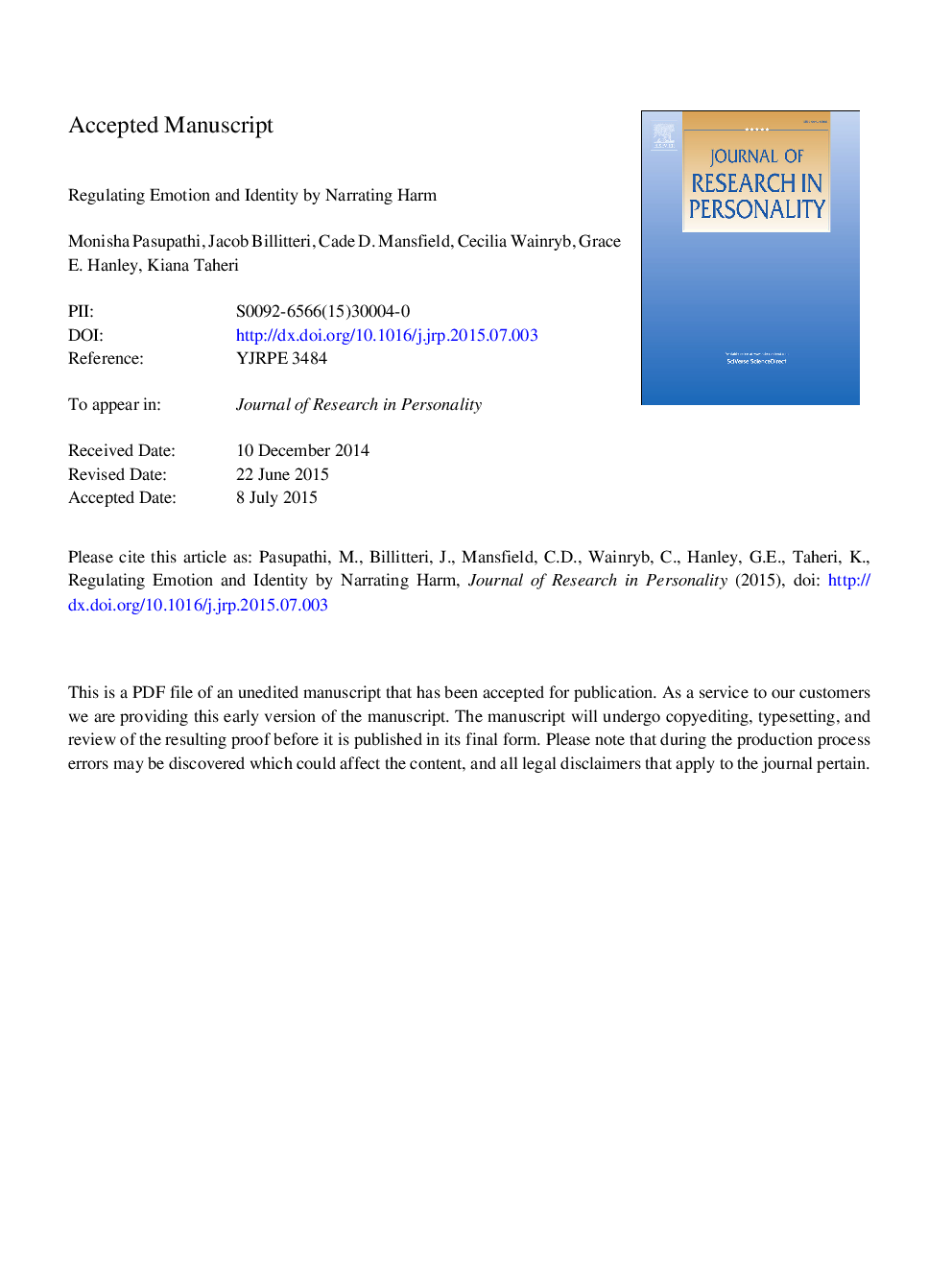| Article ID | Journal | Published Year | Pages | File Type |
|---|---|---|---|---|
| 7326741 | Journal of Research in Personality | 2015 | 48 Pages |
Abstract
This study examined how narration of harm experiences can regulate self and emotions in ways relevant to well-being. Participants (n = 88, 65% female) were asked to provide 6 narratives about instances when they were victims of harm and 6 narratives about instances when they were perpetrators of harm. Narratives were coded for extent of exploration, growth, damage conclusions and resolution. Participants drew damage conclusions more frequently in victim narratives and growth conclusions more frequently in perpetrator narratives. Both the type of experience (victim or perpetrator) and the way the experience was narrated (references to damage conclusions and resolution) predicted emotion and identity implications, which were, in turn, related to well-being. Implications for narrative approaches to self-regulation are discussed.
Related Topics
Life Sciences
Neuroscience
Behavioral Neuroscience
Authors
Monisha Pasupathi, Jacob Billitteri, Cade D. Mansfield, Cecilia Wainryb, Grace E. Hanley, Kiana Taheri,
